Jakarta, MINA – The forum of Muslim unity, Jama’ah Muslimin (Hizbullah), has called for an end to the armed conflict between the Sudanese military forces and the Rapid Support Forces (RSF) paramilitary group immediately.
This was conveyed by the Chairman of the Central Ukhuwah Assembly of Jama’ah Muslimin (Hizbullah), Sakuri SH, when meeting the Sudanese Ambassador to Indonesia Dr. Yassir Mohamed Ali Mohamed at the Official Residence of the Sudanese Ambassador in Jakarta on Wednesday.
“We call on the conflicting parties to exercise restraint and immediately end the civil war which has resulted in many casualties from both sides,” Sakuri said while reading the statement from the Jama’ah Muslimin (Hizbullah) at the press conference.
He said the war in Sudan had killed and injured many victims, both civilians, military and UN envoys.
Also Read: Sudan’s Army Seizes Several Areas in South Kordofan After Heavy Clashes with Paramilitary RSF
As of May 2, 2023, the number of civilians who have died as a result of the armed conflict in Sudan has reached 528 people. Meanwhile, more than 4,500 victims were injured.
This figure does not include the military and UN envoys as well as the 14,000 residents who were forced to flee.
Sakuri also called on the Indonesian government to take concrete steps in reconciling the Sudanese war. This is seen as a form of implementation of the country’s constitutional mandate to participate in maintaining world order.
Then, he invited all parties to play an active role in reducing the conflict, including Muslims in all parts of the world to take part so that the war in Sudan could end soon.
Also Read: Spain Sees Mass Solidarity Protests for Palestine in Over 40 Cities
“We also call on Muslims to become intermediaries to reconcile conflicting parties with the spirit of ukhuwah,” he concluded.
Sudanese Ambassador to Indonesia Dr. Yassir Mohamed Ali Mohamed responded to Sakuri’s statement, and hoped that Indonesia would provide humanitarian assistance to Sudan, which was in the midst of an armed conflict, causing a health crisis, due to paralysis of 69 percent of hospitals and dwindling medical supplies.
Yassir also spoke about developments in the current political situation in Sudan which is currently in conflict.
He emphasized that the war that took place in Sudan was not a civil war, but an attempt to take over power from the military by the Rapid Support Forces (RSF).
Also Read: EU Commissioner Says Israel Blocked Her Entry to Gaza During Egypt Visit
“Let me clarify one thing and reiterate that there is no civil war in Sudan,” Yassir explained in the press conference.
He explained that the armed conflict occurred because of an attack carried out by RSF paramilitary troops on vital objects in the capital city of Khartoum, Sudan on Saturday.
Then, the Sudanese Armed Forces (Sudanese Armed Forces/SAF) carried out a counterattack as a form of maintaining national security and stability.
“The national army has to fight with them and they (RSF) have two choices, either to surrender or they will face the consequences,” said Yassir.
Also Read: Thousands Rally in Paris on International Day of Solidarity with Palestinians
The attack, which was highly planned by the RSF, continued Yassir, was not only carried out by the RSF rebel group, but they were supported by foreign elements in a big conspiracy.
The Sudanese Ministry of Health announced that at least 528 people have been killed and more than 4,500 injured as a result of the fighting since April 15. In addition, many Khartoum residents have sought refuge in other countries, and thousands of foreign nationals, including from Indonesia, have been evacuated.
The armed conflict involved two feuding generals: army chief Abdel Fattah al-Burhan and paramilitary Rapid Support Forces (RSF) commander Mohammed Hamdan “Hemedti” Dagalo.
The two sides have clashed in recent months over the integration of the RSF into the military, a key condition for reaching an agreement with political groups on Sudan’s transition.
Also Read: RSF Kills State News Agency’s Director in El-Fasher, Detains Several Journalists
The country has been governmentless since October 2021 when the military dissolved Prime Minister Abdalla Hamdok’s transitional government and declared a state of emergency.
The military action is considered a “coup” by the political forces in Sudan.
Sudan’s transitional period, which began in August 2019 after President Omar al-Bashir was ousted, is scheduled to end with elections in early 2024. (T/RE1)
Mi’raj News Agency (MINA)
Also Read: Global Movement to Gaza to Hold Coordinated Rallies in 13 Cities on International Day of Solidarity






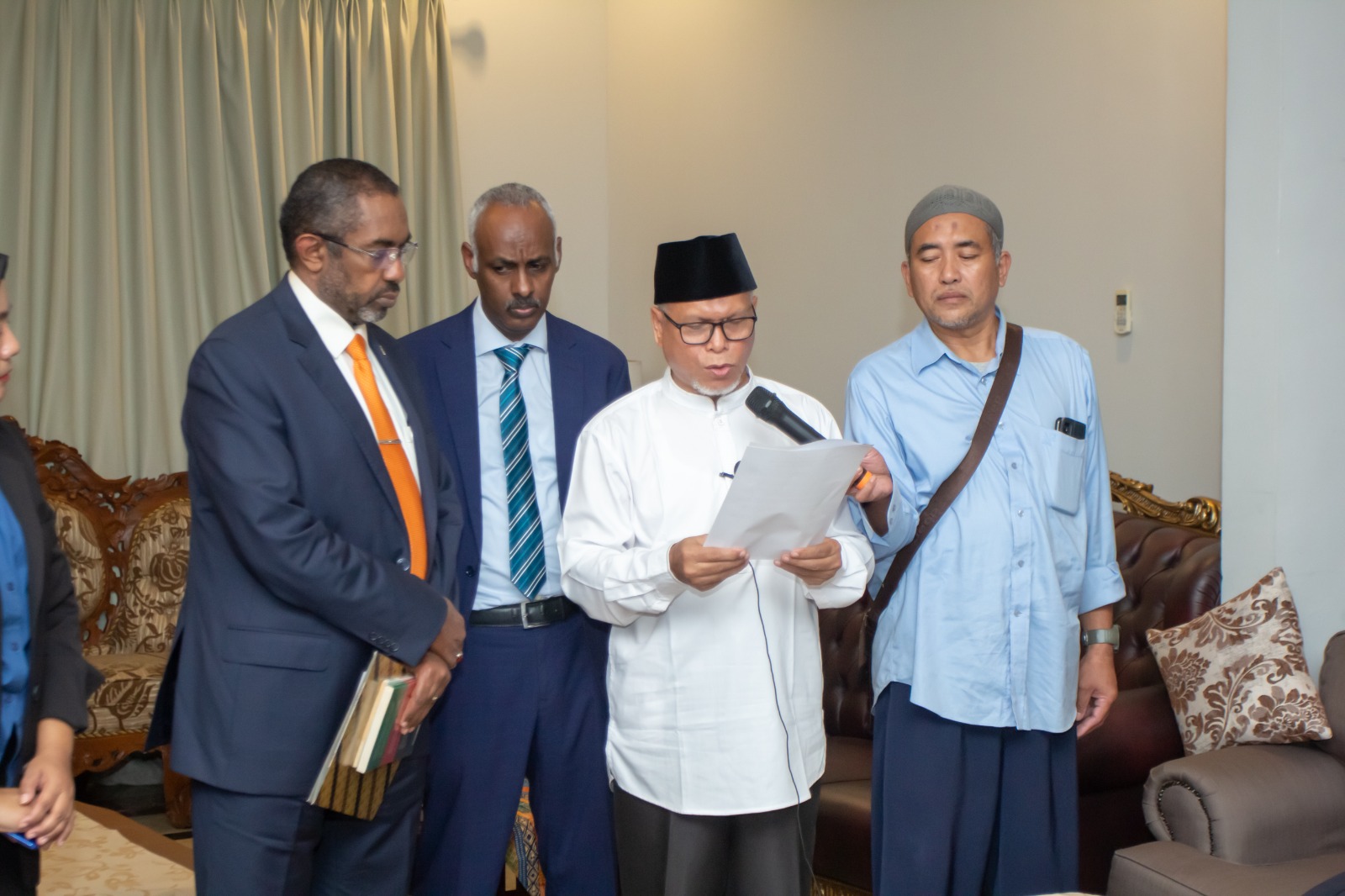

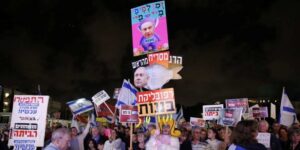
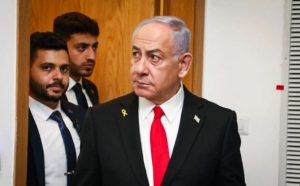
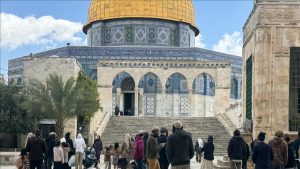


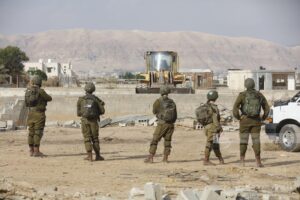
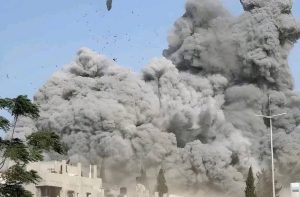
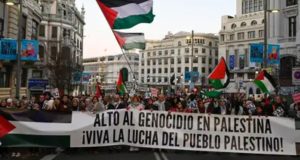
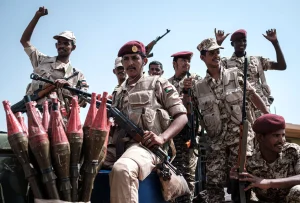
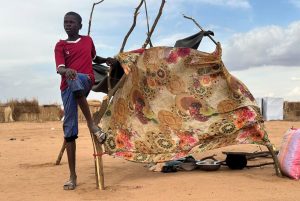
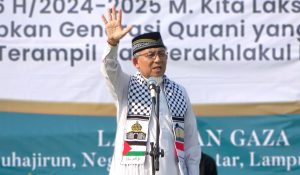
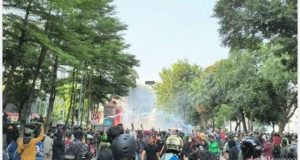
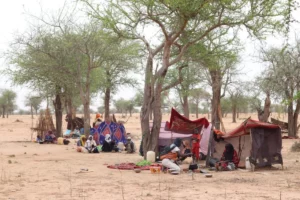






 Mina Indonesia
Mina Indonesia Mina Arabic
Mina Arabic